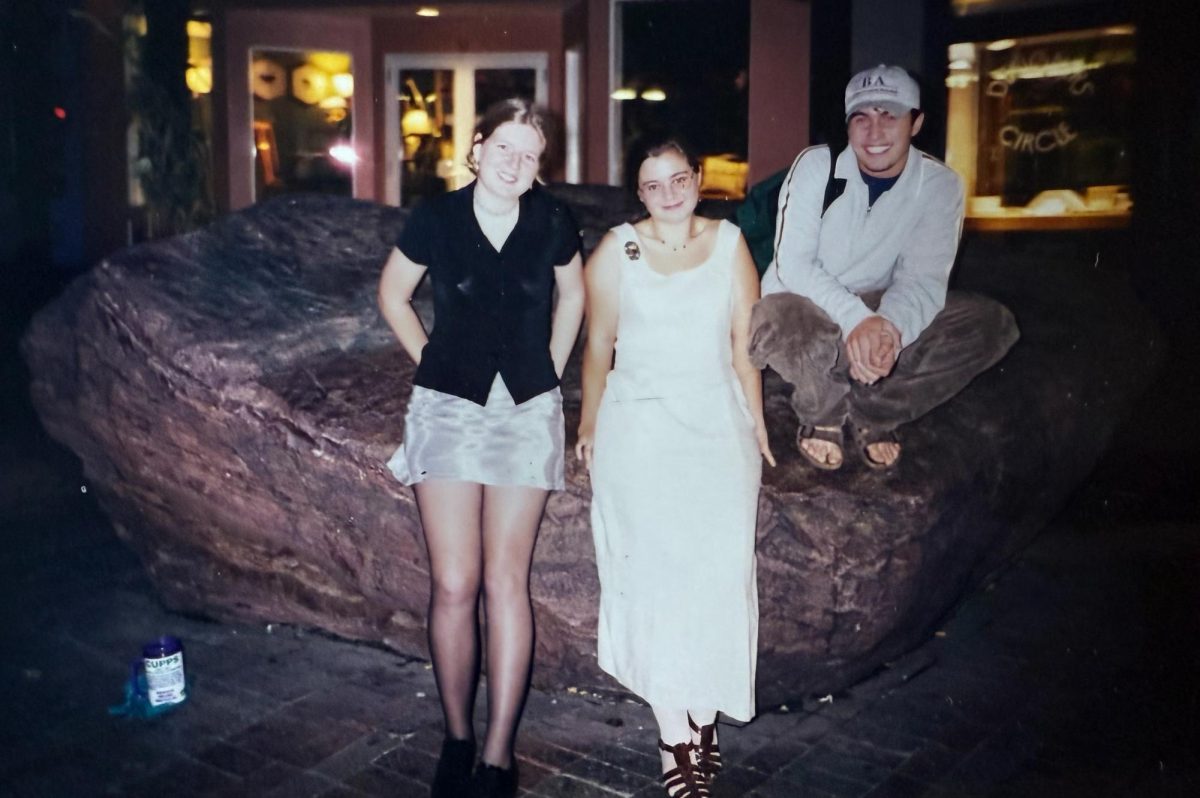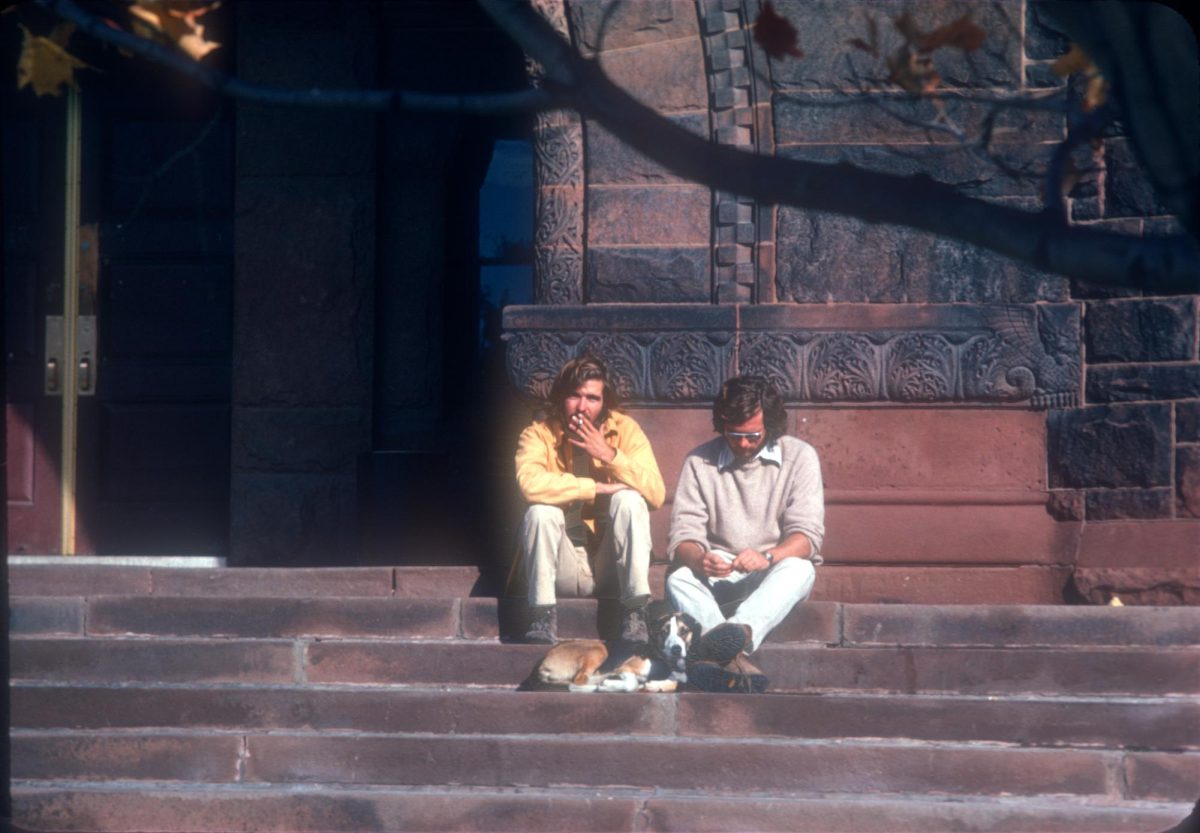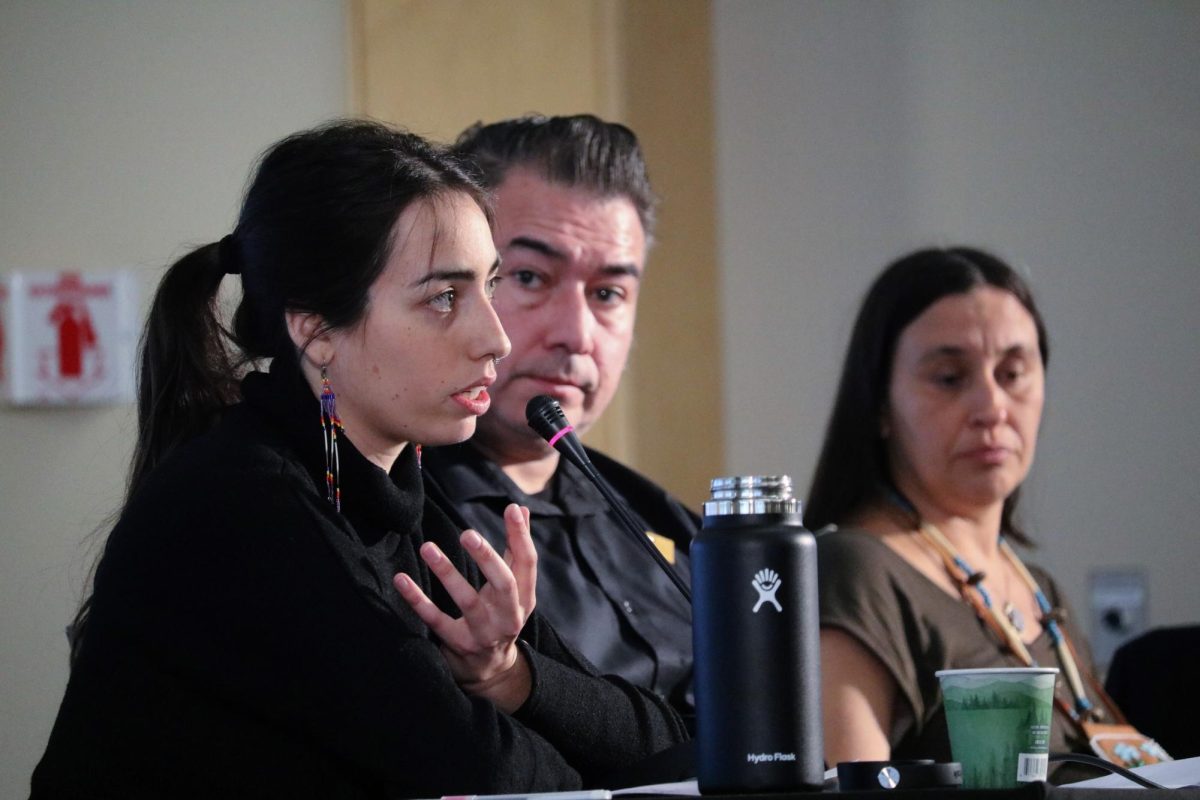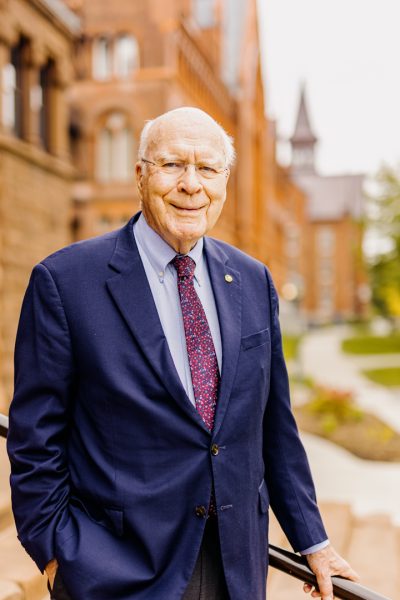
Vermont native and former Democratic U.S. Senator, Patrick Leahy will long be remembered for his unwavering commitment to justice, human rights and as a champion for Vermont’s rich agricultural heritage.
Patrick Leahy represented Vermont in the U.S. Senate from 1975-2023, making him the third-longest serving senator in U.S. history, according to his Britannica biography.
Elected at the age of 34, Leahy became the youngest appointed Senator in Vermont’s history.
After eight consecutive terms in the Senate, Leahy retired in January 2023. At the time of his retirement, Leahy was the longest-serving member in the Senate.
The Patrick Leahy Honors College, the Patrick Leahy Burlington International Airport and the Patrick Leahy Building of the Leahy Institute of Rural Partnerships were recently renamed to honor the former Senator.
In an interview with the Cynic, Leahy reflected on his life in and beyond the Senate.
Early Life and Career
Leahy was born and raised in Montpelier. As a young child, Leahy used to explore the Capitol building because there was rarely anybody in it.
“When I was about five years old, one of my buddies and I were racing our tricycles down the halls of the Capitol,” Leahy said. “We accidentally ran straight through an open door and banged into a desk.”
After hitting the desk, Leahy was greeted by the man who was sitting there.
“I asked the man, ‘Are you the governor?’” Leahy said. “And he said, ‘Yes, now get out.’”
Growing up in a capital city, Leahy was always deeply interested in government, he said. Leahy’s father was a self-taught historian, and he urged Leahy and his siblings to study history.
Leahy attended Saint Michael’s College in Colchester, where he graduated in 1961 with a Bachelor of Arts in Government.
After graduating from Saint Michael’s, Leahy attended law school at Georgetown University.
“Harvard and Yale were offering scholarships while Georgetown didn’t offer much,” Leahy said. “But I just wanted to see Washington. I don’t regret it for a moment.”
While in law school at Georgetown, Leahy married Marcelle Pomerleau. The two have now been married for 61 years as of 2024.
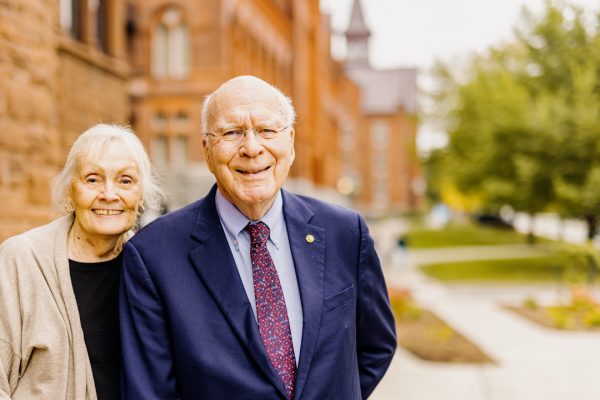
(Courtesy of Joshua Defibaugh)
Marcelle Leahy is a registered nurse who has also worked with UVM. Leahy was awarded an Honorary Doctor of Laws by the University, and UVM’s new research vessel, Marcelle Melosira, was named after Leahy to honor her accomplishments.
Leahy loved Washington, but soon grew homesick for his home state. After graduating from Georgetown, Patrick and Marcelle Leahy moved back to Vermont.
While practicing law in Vermont, Leahy was appointed State’s Attorney of Chittenden County.
“It was exciting because I was on call seven days a week, 24 hours a day,” Leahy said. “Any time there was a major crime I’d have to be there.”
While serving as State’s Attorney, Leahy was chosen as one of three outstanding prosecutors out of about 5,000 across the U.S.
“I just loved it,” Leahy said. “But I couldn’t get Washington out of my mind.”
So, at age 33, Leahy decided to run for Senate.
“Everyone told me I was out of my mind,” Leahy said. “I probably was. Vermont was the only state in the union that had never elected a Democrat.”
Vermont had also never elected anyone under age 50 to the Senate, and most other Senators had previously held a State Senate position, Leahy said.
Nevertheless, Leahy was elected to the Senate in 1975 at age 34, making him the youngest and first-ever Democrat elected to the Senate in Vermont history.
“People knew they could trust me,” Leahy said. “Whether they agreed or disagreed with me, they knew I was honest.”
Senate Legislation
In the Senate, much of Leahy’s legislative focus emphasized peace and regulation, he said.
“I’d always opposed the Vietnam War,” Leahy said. “At that time, a great majority of Vermonters supported the war in Vietnam, but I’d always opposed it.”
Soon after entering the Senate, Leahy was on a committee that would cast a deciding vote on whether or not to continue the war in Vietnam. No one in Congress had ever voted to end the Vietnam War.
Leahy was told that if he voted against the war, he would never get reelected. Still, he voted five times to end it.
“I was forever passionately against the war. So, I thought, if this meant my last term in the Senate, so be it,” Leahy said. “Why be there if you couldn’t actually accomplish something?”
Leahy went on to serve eight consecutive terms in the Senate.
In the Senate, Leahy was widely known for passing the most bipartisan legislation of any other Senator, bringing Republicans and Democrats together to pass legislation for the greater good, he said.
Later, in 1992, Leahy wrote the first law by any government to ban the usage of anti-personnel landmines.
“I was told the bill would get seven votes at most,” Leahy said. “It passed 100 to nothing.”
After passing the law banning the the usage of U.S. exported anti-personnel landmines, Leahy administered the Leahy War Victims Fund, which provides prosthetic devices and rehabilitation services to landmine victims in 40 countries. The fund now provides up to $14 million for landmine victims each year.
Following the implementation of the LWVF, Leahy visited Vietnam to address victims who had been injured by U.S. landmines. He was there to give these victims their first wheelchairs, funded by the LWVF, he said.
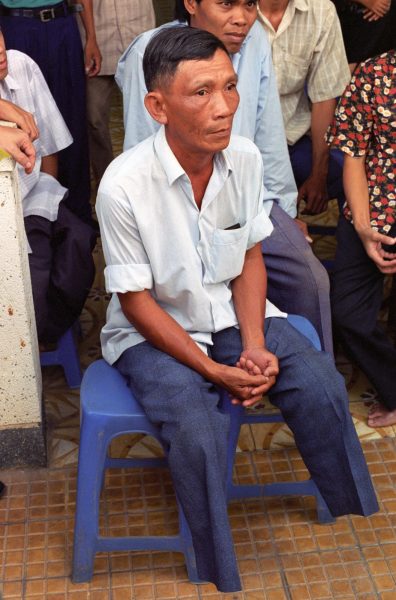
In Vietnam, Leahy was asked by journalists to pick up a veteran who lost his legs to a landmine and place him into his new wheelchair provided by the fund.
“I picked him up and put him in his wheelchair, when all of the sudden he grabbed my shirt, pulled me down, and he kissed me,” said Leahy. “You don’t forget things like that.”
During his tenure, Leahy also chaired the Senate Agriculture Committee. Many of Leahy’s legislative efforts focused on environmental or agricultural efforts across Vermont and the U.S.
In 2010, Leahy wrote the Patrick Leahy Farm to School Grant Program, a grant designed to increase the availability of local food in schools and connect students to locally sourced meals.
“The families in the wealthy areas probably throw more food away than the other families could possibly afford,” Leahy explained. “The school breakfast or lunch might be the only food lower-income students have all day.”
Leahy also wrote and passed the Organic Farm Bill, a bill which helped preserve more than 350 Vermont farms. This was the first updated Farm Bill the Senate had passed in decades, Leahy said.
While writing the bill, Leahy traveled around the country with other members of the Senate, staying at rural farmers’ homes to learn more about organic farming, even going out to do early morning chores with them, he said.
“Some of the agricultural lobbyists laughed and said [the bill] would never amount to anything,” Leahy said. “It is now a $16 billion a year industry.”
Leahy later served as president pro tempore of the Senate twice during his tenure.
Photography
In addition to his time in the Senate, Leahy served as the U.S. Capitol’s “unofficial photographer.”
Leahy has loved photography all his life, and it’s something he became known for during his time in the Senate, he said.
“I was born blind in one eye so sports and other hobbies were difficult,” Leahy said. “But you only need one eye for photography.”
One of Leahy’s most famous photographs depicts a man and his son, with the man holding a picture of the Dalai Lama. Leahy took the photo while he was visiting Lhasa, Tibet.
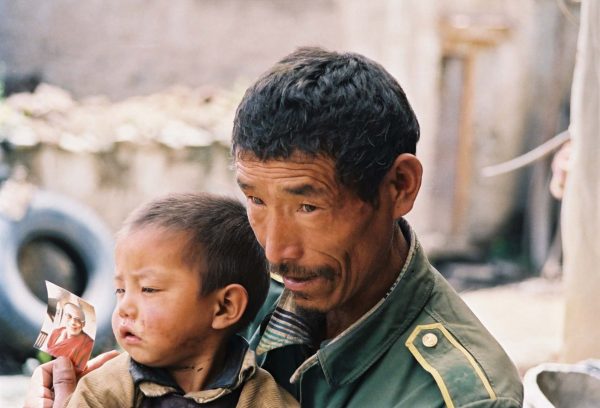
While walking, Leahy noticed a man holding up a photo of the Dalai Lama, who then pointed to Leahy’s camera, making it obvious he wanted Leahy to take a photo of him.
“At first I assumed he didn’t want me to take the photo,” Leahy said. “He would’ve gone to prison. He never would’ve seen his kid again.”
Later, a person from Leahy’s embassy who spoke the language went back and asked the man why he risked prison. “They have to know,” the man said.
Another one of Leahy’s most famous photographs was taken of a man in El Salvador.
Leahy refers to this photograph as his “conscience picture.” He used to keep the photo by his desk so he’d always see the man looking him right in the eye, he said.
“He’s saying, ‘You’re powerful, you can do anything you want,’” Leahy said. “‘And there’s nothing I could ever do for you because I have nothing. So what do you do for people like me?’”
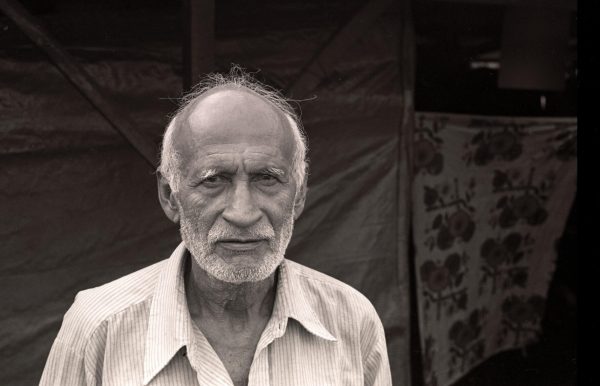
Batman
Beyond his time in the Senate, Leahy has long been a massive Batman fan.
Leahy first discovered Batman at only four years old, when he got his first library card at the Kellogg-Hubbard Children’s Library in Montpelier.
Since 1995, Leahy has acted in five Batman movies and voice acted in one episode of the Batman Animated Series.
Leahy gives all of the residuals he makes from the Batman movies to the children’s library he grew up going to in Montpelier, where he first discovered Batman.
“I loved making those movies,” Leahy said. “Getting to see how they make those movies was just incredible.”
In 1996, Leahy collaborated with DC Comics to create the Batman comic book, “Death of Innocents: The Horror of Landmines,” which brought awareness to the danger of landmines.
While the Senate was preparing to vote on Leahy’s anti-landmine bill, Leahy brought a copy of the book for each Senator.
“Each of the 100 senators had a copy at their desk,” Leahy said. “Before the bill passed, I was told I was lucky to get seven votes. After they read it, the bill passed 100 to nothing.”
Using his comic book, Leahy was able to win over a unanimous vote in the Senate, and pass the bill in a Republican controlled house.
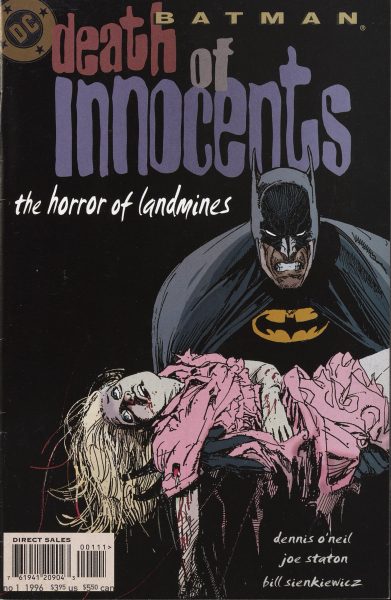
Beyond the Senate
In recognition of his legacy, Leahy was appointed President’s Distinguished Fellow at UVM in 2023, following his retirement. At UVM, Leahy will participate in research, academic and engagement projects.
He will also be available as an advisor to students and faculty members and a guest lecturer in classes and at public events, according to a March 2, 2023 article from UVM Today.
As he continues serving his Vermont community, Leahy encourages young people to get actively involved in civic life, he said.
“I would encourage young people to get actively involved and spend time reading,” Leahy said. “Read history books. Know what you’re doing. Get involved.”




